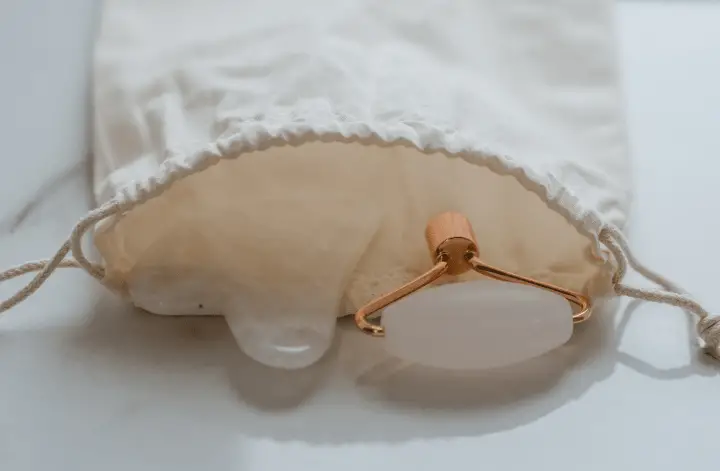Electrolytes are essential for life – fact! But there is a lot of confusion about the need to consume them as ‘supplements’, meaning outside what you consume naturally through food and liquids.
There are a lot of sports drinks on the market (most filled with too much nasty sugar), which are not only dubious from a health perspective, they’re equally shifty for the general health of your wallet.
In this post I’ll go over the essential need-to-knows about electrolytes, so you understand why they’re important, the signs of deficiency to watch out for and the occasions when you might need to take them supplementally – as an add-on.
I’ll also cover the best all-round natural electrolytes sources you can stock up on and have in an emergency. At the end you’ll find 3 basic DIY electrolyte formulas (recipes) you can easily whip up at home, using natural ingredients.
Related post: The Healthiest Water To Drink (for you)
Electrolyte basics
Electrolytes are substances that ionize (produce ions) when dissolved in water. These ions can have a positive (cations) or negative (anions) charge and they can also be divided into acids, bases (alkali) and salts. They’re called electrolytes because they basically conduct electricity – electrical currents.
Importance of electrolytes
Electrolytes have 3 basic major functions:
- They conduct electricity, which is vital for muscle and nerve function
- They keep the bodily fluids in their respective compartments (through osmotic pressure), also balancing blood pressure
- They also balance pH changes in those fluids
They’re essential for many body functions and brain activity. They regulate hydration levels, balance blood acidity and pressure, help regulate body temperature, help rebuild damaged tissue, help muscle and cardiovascular function.
Electrolyte imbalance can mean either too low or too high a level, both of which have consequences.
Signs of electrolyte imbalance
The most usual signs to look out for are:
- Headaches, confusion, nausea, and delirium (usually due to low sodium)
- Tachypnea (rapid breathing), sleeping difficulty, and restlessness (usually high sodium)
- Weakness, fatigue, muscle twitching and spasms (usually low potassium)
- Arrhythmias (can be high potassium or low magnesium)
- Vomiting (high chloride)
- Seemingly unquenchable thirst (no matter how much water you drink, you don’t feel satisfied)
- Changes in blood pressure
- Numbness or tingling (usually low magnesium)
Which, left unchecked, further down the line might lead to more serious things like bone disorders, nervous system disorders, seizures and convulsions.
Related post: The (8) Essential Habits For Health You REALLY Need!
When to take electrolytes
During and/or after a workout
Every time you sweat, you lose electrolytes (especially sodium). Depending on how much you sweat and for how long, you may need to replenish those electrolytes.
The bigger the body and the more strenuous the activity, the more you’ll lose. Just sweating doesn’t necessarily mean you need to load up on electrolytes, since the body does maintain a reserve.
However, that will also depend on your diet and general state of health. If your diet is low in vitamins and minerals, you likely have low reserves of electrolytes, or are already deficient.
After periods of diarrhea and/or vomiting
Like with sweating, these result in high water loss, which can affect your electrolyte balance, so it’s a good idea to replenish the electrolytes lost, in these situations.
During long fasts
Obviously, if you’re not consuming any food for an extended period of time your electrolyte reserves will deplete.
In fact, one of the most common consequences of longer fasts is nausea and the most recommended aid for that is drinking a bit of water with some salt or lemon juice, precisely to add some electrolytes and help you sustain the fast for longer.
During and after illness
During illness your body is consuming extra resources to fight off the attack, or manage the problem.
At the same time, your appetite may decrease a lot so quite probably you’re not consuming the electrolytes you naturally would through diet. It’s also a good time to recharge electrolytes.
In hot weather (especially if humid)
Like mentioned earlier, even if you’re not exercising, just being in hot weather will make you sweat and if you’re already a heavy sweater (like me), you may be losing more electrolytes than you’re managing to ingest.
I know in my case when summer comes, I tend to naturally crave lemonade, because just regular water doesn’t seem to satisfy my thirst. Which makes sense because I sweat a lot!
If you take a lot of diuretics
This could be either medication or supplements. But it could also mean drinking too much coffee, teas or infusions.
The act of drinking itself will increase urination, and therefore water loss, but coffee and tea also have an added diuretic effect, so they’ll make you want to pee even more.
If urination is excessive, it might lead to electrolyte imbalance and it’s a good idea to give your body an extra boost, to support your diet.
If you’re experiencing regular muscle cramps, especially during exercise
This could very likely be due to electrolyte imbalance and it would make sense to try an electrolyte drink for a few days to see if the symptoms go away.
If you’re sweating out more than you’re consuming in your regular diet, you need to supplement with added electrolytes.
Should you take electrolytes before bed?
This will depend a bit.
Having electrolytes before bed may actually help you sleep better, by improving hydration (the body needs and loses water even during sleep), reducing leg cramps and helping your muscles to relax – magnesium especially is a known sleep aid.
However, you should take into account how you’re consuming the electrolytes. If you’re gulping down a big ol’ glass of electrolyte-rich water just before bed, you might end up waking up in the middle of the night to pee. So, it’s best to have a small amount and to have it a bit earlier in the evening (as opposed to right before bed).
Also, take into account the type of electrolyte drink you’re having. If it’s high in sugar it might act as a stimulant and prevent you from relaxing and falling asleep quickly.
Do you really need electrolytes?
For the most part, actually, no.
You can get electrolytes through drinks (like fruit juices and milk) but the main source is food. There’s no need to buy electrolyte supplements, or to make an actual electrolyte heavy drink to compensate for normal loss of electrolytes in your body.
The body always keeps a running store of electrolytes, so if you have a nutrient dense diet, you should be able to handle periods of higher water loss (strenuous exercise, vomiting, diarrhea, etc.).
Quick & easy sources for all the major electrolytes
The best all-round sources of electrolytes are fruits and veggies – they’re packed with all the major and minor electrolytes the body needs (plus a million other things).
Some are higher in certain electrolytes over others, but if you’re eating a good variety you don’t really have to get that granular with the specific amounts of each – you’ll be covered. Below are some quick sources.
- Direct salt, cheese and pickled foods are high in sodium.
- Bananas, avocados and sweet potatoes are excellent sources of potassium.
- Dairy (like milk, cheese and yogurt) and green leafy veggies are great sources of calcium.
- You can find chloride also in salt.
- Magnesium is high in seeds, nuts, again avocados and leafy greens.
- Excellent sources of bicarbonate are bananas, spinach and dairy.
- Phosphates can also be found in dairy products, egg yolks, bone broth and cucumber.
Electrolyte powerhouses
- Coconut water and tomatoes are great quick sources of potassium, calcium and magnesium.
- Watermelon is high in potassium, magnesium and sodium.
- Cucumber is an excellent source of magnesium, sodium, phosphorus, and calcium.
- Apple cider vinegar contains great amounts of potassium, sodium and magnesium, as well as different types of acids, which are also electrolytes.
- Lemon juice is one of the most complete natural electrolyte drinks, high in sodium, potassium, calcium and magnesium.
- Likewise, bone broth prepared correctly (simmered for several hours) is a powerhouse of potassium, calcium, sodium, magnesium, phosphorus and chloride (among many other nutrients and micronutrients important for health and longevity).
Is sugar an electrolyte?
You may have noticed that many DIY electrolyte drinks (and commercial ones) also include a form of sugar – usually honey or maple syrup. Sugars themselves are not actually considered an electrolyte.
Although they dissolve in water, they remain as molecules and do not produce ions – they’re not electrically charged.
On the other hand, glucose (sugar) can help with electrolyte absorption and it is a source of energy for the body, so it could be very useful in electrolyte drinks meant for high intensity workout sessions.
So, you can always add a bit of sugar (in whatever form) to an electrolyte drink, but it’s not really, strictly speaking, necessary.
Also, if you’re using an ingredient like a fruit juice – citrus, watermelon, coconut water – or milk, then you’ll be consuming the natural sugars already present in those foods and there’s no need to add any extra.
Trace minerals vs electrolytes
Sometimes they get confused as the same thing, but there is a difference.
The best way to explain it is by saying that although a lot of electrolytes are minerals, not all minerals are electrolytes.
Copper, for instance, is a mineral (and essential for health) but it does not produce ions when dissolved in water, therefore it does not carry a charge and so it’s not considered an electrolyte.
In the same way, many electrolytes are not minerals. Like I mentioned earlier, electrolytes can be divided into minerals, bases and acids. Acetic acid (the things that makes a vinegar, vinegar) would be an example of an electrolyte that’s not a mineral.
Chemistry is VERY particular, folks!
The best & simplest natural DIY electrolyte formulas
So, outside of just chugging on some bone broth, plain coconut water, lemonade or a glass of milk, what are the best and simplest natural DIY electrolyte formulas you can prepare at home?
Below you’ll find the three simplest and most natural DIY electrolyte drinks you can start with, to dip your toes. They all have simple ingredients and are easy to prepare.
Each of the recipes below makes approximately 4 cups or 1 liter.
In all cases, you can always add a bit of honey or maple syrup to taste if you want it sweeter, but like I mentioned before, it’s not really necessary to create an electrolyte drink.
Lemon-lime electrolyte drink
Ingredients
- 3 cups (approx. 700 ml) water
- ½ cup (approx. 120 ml) lemon juice
- ½ cup (approx. 120 ml) lime juice or coconut water
- ⅛ tsp whole (unrefined) salt (sea salt, Celtic salt or Himalayan salt)
- ⅛ tsp bicarbonate (food grade baking soda)
Mix together, shake or stir to dissolve the salts properly and it’s ready to go. It keeps in the fridge for about a week.
If you don’t have bicarbonate, you can up the salt to ¼ tsp. The mixture won’t contain bicarbonate, but it’s the sodium that mostly gets depleted when you sweat or otherwise lose a lot of body fluids.
Using coconut water instead of lime juice will give you an extra boost of potassium, since coconut water is even higher in this electrolyte than bananas.
Orange electrolyte drink
Ingredients
- 3 cups (approx. 700 ml) water
- 1 cup (appro. 230 ml) orange juice
- ⅛ tsp whole (unrefined) salt (sea salt, Celtic salt or Himalayan salt)
- ⅛ tsp bicarbonate (food grade baking soda)
Mix together, shake or stir to dissolve the salts properly and it’s ready to go. It keeps in the fridge for about a week.
Again, you can just up the amount of salt to ¼ tsp, if you don’t have baking soda on hand.
Apple cider vinegar electrolyte drink
Ingredients
- 3 cups water
- 1 or 2 TB apple cider vinegar (to taste)
- Juice of 1 lemon
Mix together, shake or stir to dissolve the salts properly and it’s ready to go. Also keeps in the fridge for about a week.
I love these electrolyte recipes for their simplicity and effectiveness – they’re definitely easy to whip up in a minute or even to keep stocked in the fridge during the summer months. I especially love a good lemony drink in hot weather!
Just know that you don’t actually NEED to prepare (or buy) specific electrolyte formulas to supplement with – as you’ve seen there are so many natural foods and liquids that are packed with them. Just pick a few basics that work for your diet and make sure to consume them regularly in times of more electrolyte demand.








